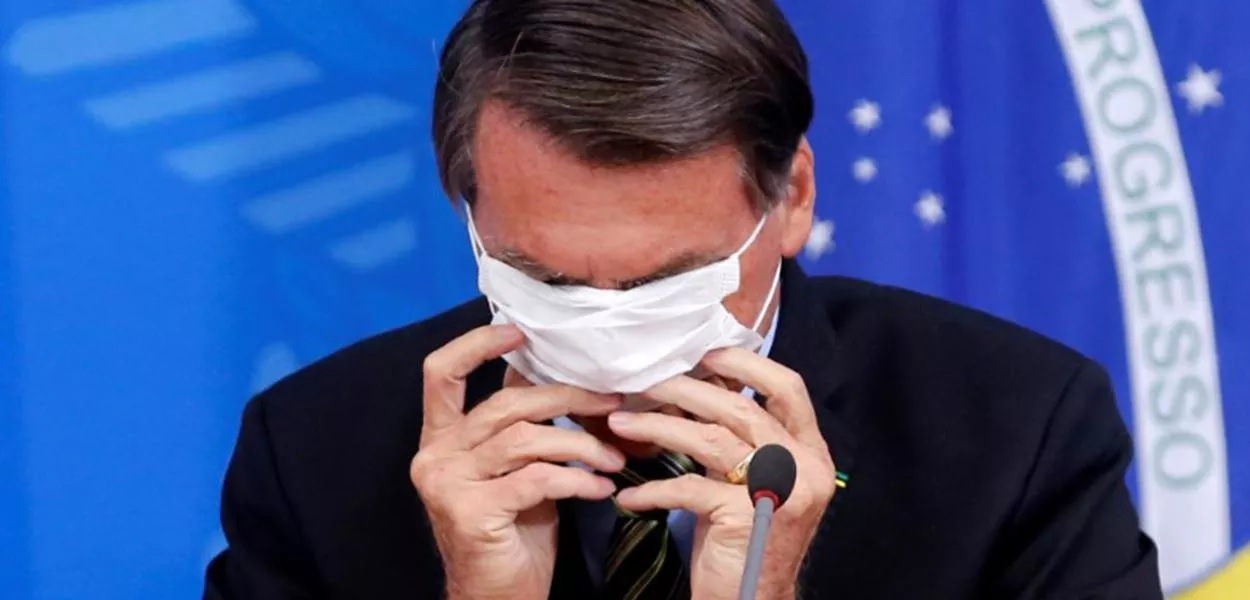RIO DE JANEIRO, BRAZIL – A feature article published by The New York Times compares how the Brazilian government has responded in the past to serious public health crises, such as the AIDS and Zika epidemics and now the novel coronavirus.

“The nation’s pioneering responses to past health crises, including AIDS and Zika, won global praise. But the government’s chaotic response to the virus has undercut the country’s ability to cope.” the text says.
“The national confusion has helped fuel the spread of the disease and contributed to making Brazil an emerging center of the pandemic, with a daily death rate second only to that of the United States”.
The newspaper considers the country’s reaction to the Covid-19 pandemic “contradictory” and cites as an example the requests of President Jair Bolsonaro for people to return to work, contrary to what is recommended by the WHO (World Health Organization) and a large number of medical experts.
Nelson Teich’s departure from the Ministry of Health on Friday, May 15th, after less than a month in office, and the “abrupt” resignation of Luiz Henrique Mandetta, Teich’s predecessor in office, after clashes with the President, are highlighted by the newspaper.
“Public health experts say the disorderly approach has further saturated intensive care units and morgues and contributed to the deaths of scores of medical professionals as Latin America’s largest economy plunges into what may be its steepest recession in history”.
“The crisis facing the country stands in stark contrast to Brazil’s track record for innovative and nimble responses to health care challenges that made it a model in the developing world in decades past.”
“Brazil had months to study other countries”
The New York Times interviewed experts and health professionals, including Professor Márcia Castro of Harvard University.
“Brazil could have been one of the best responses to this pandemic,” said Castro, a global health expert. “But at the moment, everything is completely disorganized and nobody is working on joint solutions. That has a cost, and the cost is human life.”
The report evaluates that Brazil had months to study the errors and successes of the first countries struck by the virus: “Its robust public health care system could have been deployed to conduct mass testing and trace the movements of newly infected patients.”
“Its failure to act early and aggressively is at odds with the country’s ingenious approaches to past medical crises,” says the paper, based on the opinion of health experts.
HIV and Zika
The publication shows that in the 1990s the country was able to provide free treatment for people with HIV after registering a high number of AIDS cases, which put pressure on the pharmaceutical industry at lower costs. And in 2007, it manufactured its own generic version of a drug for HIV, reducing the incidence of the virus.
“In 2013, Brazil vastly expanded access to preventive health care in poor areas by hiring thousands of foreign doctors, most of them Cuban. And to combat the Zika outbreak in 2014, Brazil created genetically modified mosquitoes that helped decrease the insect’s population, a tactic that will soon be deployed in Florida and Texas. [in the United States].”
Brazil’s prior success resulted from investment in science and empowerment of scientists, said Tania Lago, a professor of medicine at Santa Casa University in São Paulo, who worked in the ministry of health in the 1990s.
“Now there’s been a rupture in the nation with its scientific community,” she said. “What saddens me is that we are and will continue to lose lives that could be saved.”
The newspaper says Bolsonaro “played down the risks and encouraged public gatherings” while other countries began implementing drastic measures to contain the spread, in February and March.
“Now, he is urging Brazilians to return to work even as the number of new cases and deaths are spiking”.
The federal government’s assessment that gyms and beauty salons are essential businesses is listed as yet another government decision contrary to what has been advocated by governors and mayors across the country.
The lack of adequate structure and equipment for health professionals also feature in the report as a cause for these people’s exposure to coronavirus.
“Virus could kill 88,000 in the country”
The newspaper also states that experts do not expect the peak of infections in the country to occur for several weeks yet:
“As of early May, it had the highest contagion rate of 54 countries studied by Imperial London College, which also found that existing containment measures in Brazil have failed to put transmission on a downward trajectory.”
“According to the Institute for Health Metrics and Evaluation at the University of Washington, the virus is on track to kill more than 88,000 people in Brazil by early August.”
The Bolsonaro government did not wish to comment, says the New York Times.
Source: UOL

